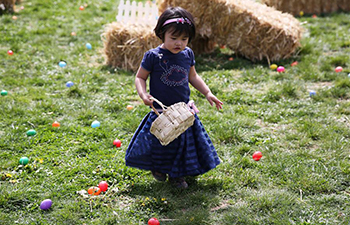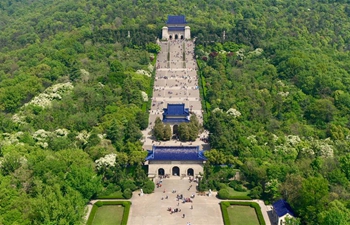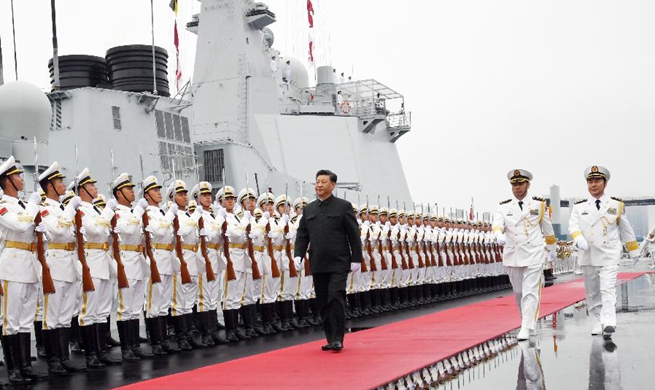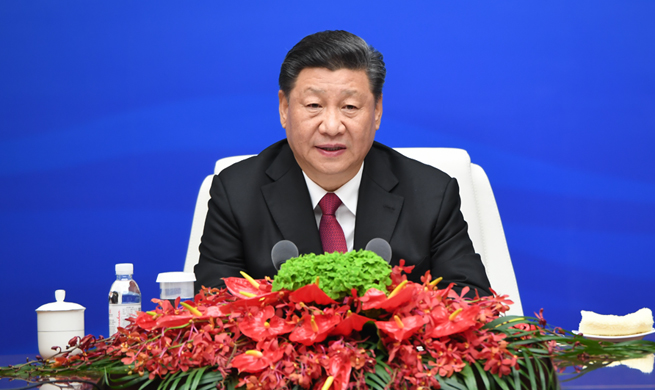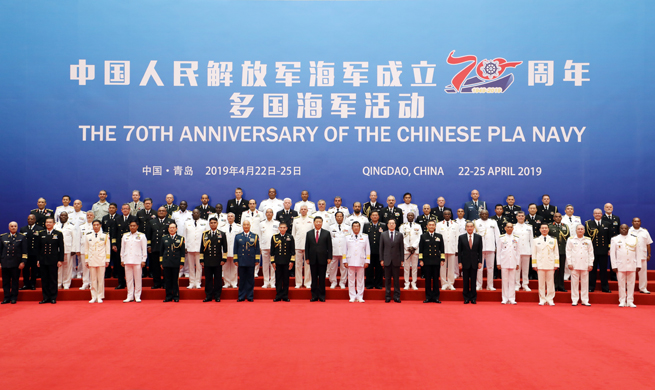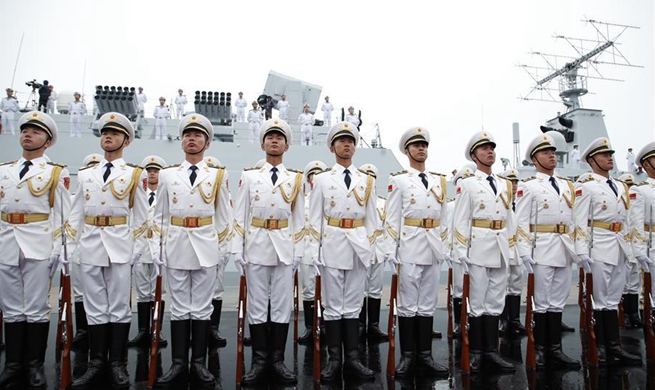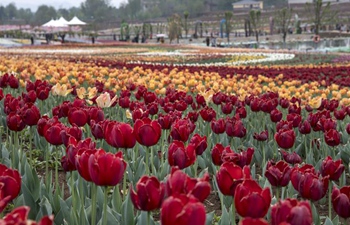BOSTON, the United States, April 22 (Xinhua) -- Telling a Chinese story in a language that audiences worldwide can understand is the key to success. That's the lesson Chinese TV producer Yu Zheng learned in the years he spent becoming one of the most celebrated in the trade.
In a recent interview with Xinhua, Yu drew on his recent success with the hit TV-drama, the Story of Yanxi Palace, to explain how Chinese stories can gain more appreciation in oversea markets.
"I use a global language to write the script, then inject elements unique to China. It gives off a very good vibe," Yu, also a credited screenwriter, said.
According to Yu, there are subtle differences between how a Chinese screenwriter and a foreign screenwriter typically compose their works.
"Chinese screenwriters usually pay more attention to the plot of a story, while their foreign counterparts may concentrate their efforts in building the characters, which are different approaches," Yu said.
The Chinese approach sometimes results in the plot being viewed as "out of touch with the reality," Yu said, thus undermining its attractiveness to global audience.
"I only became more aware of this difference as I spent more time as a screenwriter, and after I made the distinction I started to actively deploy this technique in my work, and the Story of Yanxi Palace is one such example," Yu said as he explained the reasons behind the series' worldwide popularity.
The Story of Yanxi Palace, centered around how a young girl of humble origins uses her wit to become queen, was reportedly the most frequently searched TV-series on Google in 2018, and Yu said it was sold to 90 countries around the world.
The second part of the recipe is to incorporate unique Chinese elements into the show, Yu said, adding many of the inspirations for costume design came from a trip to Suzhou, an eastern Chinese city with a long tradition of fine handcraft.
Two of the most heavily used materials in making the show's costumes were Kesi, or Chinese silk tapestry, and Luo, a special silk original to that part of China.
"The intricate works found on the costumes in the show became wildly popular," Yu said, adding many of the workshops that used these techniques in their work saw soaring orders.
Yu was also proud that the show may have helped preserve the ancient skill of Dashuhua, which features performers pouring molten iron onto the facade of the ancient city wall to create a firework-like spectacle.
"I hope by showing this beautiful performance, more people can learn about this disappearing trade and keep it alive," Yu said.
Yu said Peking Opera, which was an important part of the plot in the Story of Yanxi Palace, was also well received by foreign audiences.
"For many foreigners, Peking Opera is a mysterious art, and the interest over this art form was hard to overstate," Yu said, "which is why my next show will have its main plot build around Peking Opera."
Yu, who often travels to the United States for work, said he supports more robust communications between Chinese and foreign screenwriters.
Yu explained that in Chinese TV series production, the screenwriters in general have limited control over the story, while the investors who are unfamiliar with screenwriting hold larger sway. Furthermore, the exorbitant wages paid to top-tier actors can strain the resources for other aspects of the show, which can also undermine its quality.
"Talking with our foreign counterparts can give us a direction in which we can develope," Yu said. "Only by continuous dialogue can we learn from each other."
